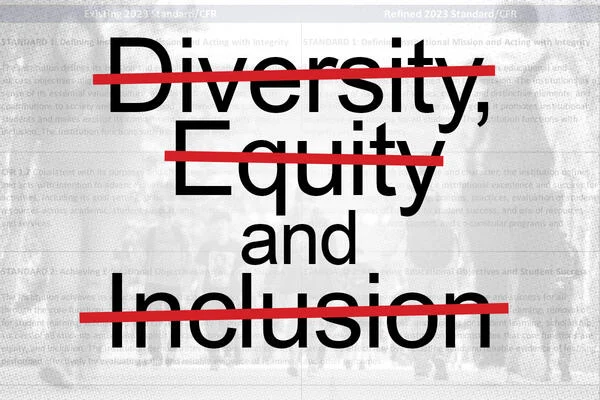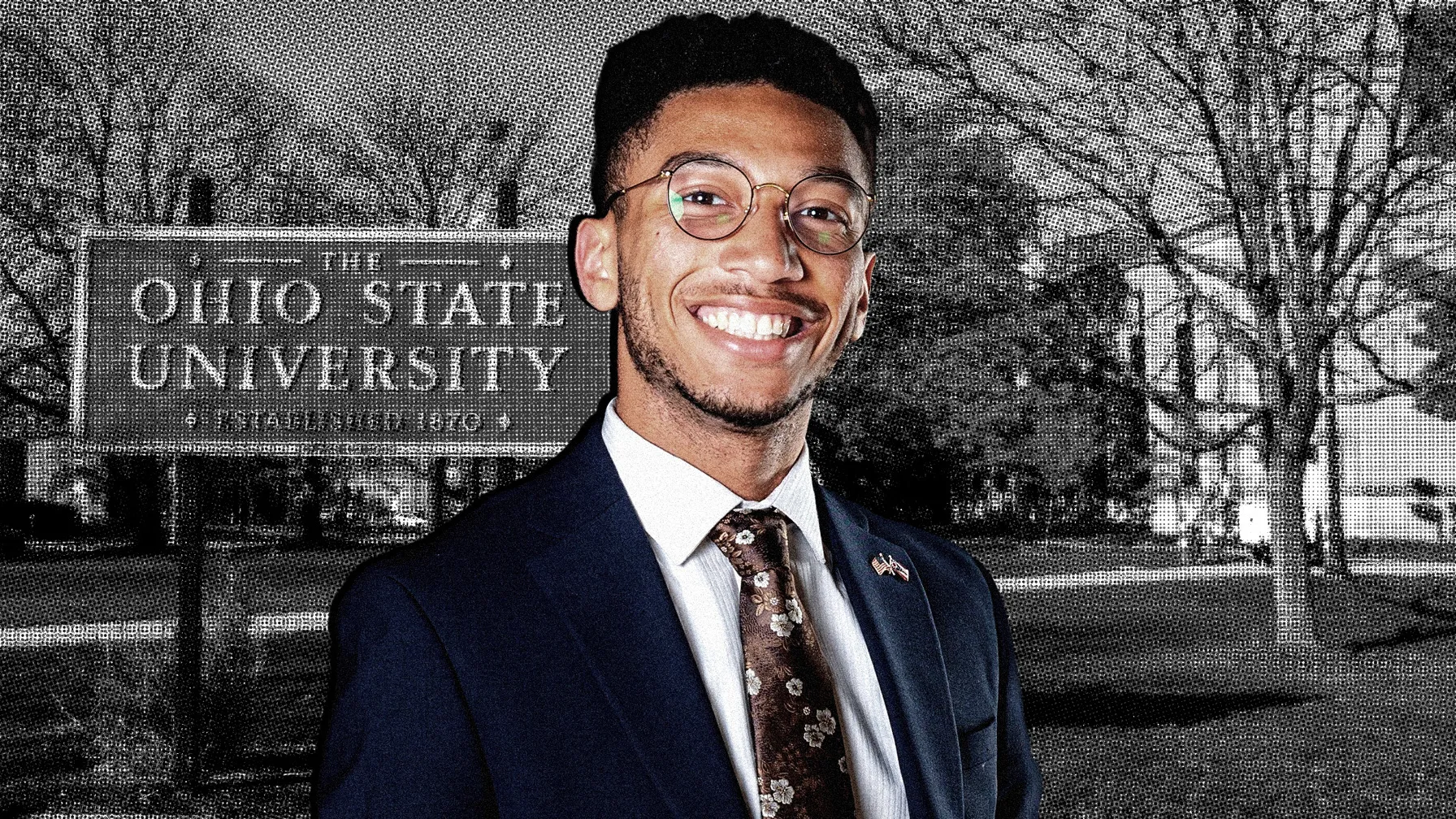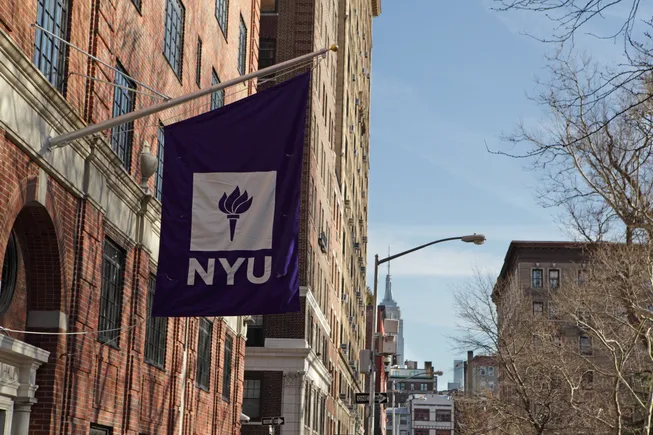Get stories like this delivered straight to your inbox. Sign up for The 74 Newsletter
In 2020 and 2021, the COVID pandemic exposed weaknesses in the United States’ supply chain for key items in American households.
The Biden administration spent millions of dollars through the U.S. Department of Agriculture on new programs that helped farmers sell their produce to local schools, create produce boxes for households and provide more direct food access to their communities.
The Local Food Purchase Assistance (LFPA) and Local Food for Schools (LFS) programs provided incentives for schools and community organizations to buy food from local farmers. They allowed states to create contracts with farmers so schools could purchase their foods and gave farmers the promise of a guaranteed sale when harvest time arrived.
Now, with rocky trade partnerships and tariffs looming, President Donald Trump’s administration has slashed the remaining money for the programs, leaving farmers across the country heading into their growing season unsure who will buy their produce.
“We really figured out how to get local farm product into community spaces under LFS and LFPA,” said Thomas Smith, the chief business officer at the Kansas City Food Hub, a cooperative of farmers near the Kansas City area. “We were making our whole organization around meeting those new needs, because we believe in the government’s promise that they believe in local food.”
The Trump administration canceled about $660 million in funding for the programs that was to be paid out over the next few years. Through the programs so far, USDA has paid out more than $900 million to states and other recipients.
KC Food Hub took on the challenge of helping farmers, school districts and the Missouri Department of Elementary and Secondary Education work together to streamline the processes under the Biden-era programs. It was almost an instant success.
In 2024, the cooperative brokered more than $500,000 in sales for small farmers in the Kansas City region — more than the group had seen in its first five years of operation.
KC Food Hub hoped that the new partnerships would continue putting money back into farmers’ pockets and was aiming for over $1 million in sales for the farmers they represent. Now, they’re huddling with school districts across Kansas and Missouri to try and keep some of the contracts alive in the absence of the federal money.
How purchasing agreements relieve stress for small farmers
The local food programs were an extra pillar of support for small farmers across the country.
USDA data show that since 1980, the number of farms across the U.S. has decreased from about 2.5 million to 1.88 million in 2024. Part of that struggle, Smith said, is like many small-business owners, farmers are forced to take on many different roles.
“What they really want to be doing is farming, knowing their soil, knowing their land,” Smith said. “But because there is no distributor like the Food Hub in most communities, they have to be business people, too. They have to be in the board meetings, meetings with school administrators. And that just puts so much stress onto the food system.”
Over the years, as small farms have dwindled and larger operations have consolidated agricultural production in the United States, the middle market and distributors like the Food Hub have phased out.
When it comes to large-scale distributors, there are plenty of places a farmer could turn to sell their products. But the return for that farmer when selling to a large distributor is much lower.
“You get pennies on the dollar,” Smith said. “No respect to your work, no respect for your worth.”
There are other USDA programs that dedicate money to states through their nutrition assistance programs and set aside funds for seniors and low-income families to buy produce from local farmers.
Studies show ripple effects through local economies when higher quantities of local food are purchased. A 2010 study found that for every dollar spent on local food products, there is between 32 cents and 90 cents in additional local economic activity.
For Mike Pearl, a legacy farmer in Parkville, the programs pushed him to expand faster than he’d planned. Now, without the guarantee of those contracts, he’s scaling back his production plan for the year.
“If you think about it, it was an early game changer,” Pearl said. “We were able to, for the first
time … grow on a contracted basis for a fair price for the farmer, in a way that we never would have been able to do before.”
That encouraged Pearl to increase production and begin making upgrades before he felt completely ready to do so, he told The Beacon. New equipment, growing more produce and hiring more staff were all side effects of the local food purchasing agreements.
“I’m not sure that a lot of vegetable farmers were actually ready for it,” Pearl said. “I wasn’t prepared for it. But we made some changes to grow a bit more and do as much as we can on a short runway. We were set up for a perfect storm.”
Anything extra Pearl produces will be donated, as his farm is one of the largest donors of food in the Kansas City area. But other farmers are left with questions about what will happen with their crops — and their revenue.
It raises a question of trust that Maile Auterson has encountered throughout her life as a fourth-generation farmer in the Ozarks and the founder of Springfield Community Gardens, which facilitates local produce boxes and the LFS programs in the Springfield, Joplin and Rolla areas.
“We promised the farmers,” Auterson said. “The biggest insult to us is that we cannot follow through on the promises we made to the farmers that we had made with that money.”
The area her group serves was set to get $3 million in federal funds over the next three years. While Auterson is trying to fulfill some of those contracts, the trust that small farmers were building with the government through the program has been severed, she said.
“We talked the farmers into participating and scaling up specifically for this program,” Auterson said. “Then when we can’t follow through, the government has done what they were afraid the government would do, which would be to not look out for the small farmer. It’s a terrible moral injury to all of us.”
What’s next for small farmers and local food purchasers?
Smith said the Food Hub is in talks with its participating school districts — including Lee’s Summit, Blue Springs and Shawnee Mission — to continue their purchasing agreements even without the federal funds.
So far, even with the funding cancellation, 95% of 2024’s produce sales are set to be maintained through this year, Smith said.
“As small farmers, they can’t meet the streamlined industrial agriculture price points, but we can come close,” said Katie Nixon, a farmer and the co-director of New Growth Food Systems, which is affiliated with the West Central Missouri Community Action Agency.
“Our quality is usually a lot higher,” Nixon said. “Lettuce, for example, will last three weeks in the cooler, whereas lettuce coming from greenhouses in God knows where will last a week before they turn to mush.”
The Blue Springs School District saw a 40% increase in the use of its cafeteria salad bars after switching to local produce, Smith said. And school districts often find less waste and more savings, despite the slightly higher price when purchasing the produce, Nixon said.
Research shows that farm-to-school programs, like sourcing local produce and teaching kids about farming, resulted in students choosing healthier options in the cafeteria and eating more fruits and vegetables. Schools also saw an average 9% increase in students eating their meals from the school cafeteria when they participated in farm-to-school programming.
During Trump’s most recent Cabinet meeting at the White House, Health and Human Services Secretary Robert F. Kenendy Jr. said the administration is planning a massive overhaul of the federal school meals program.
“It’s going to be simple, it’s going to be user friendly. It is going to stress the simplicity of local foods, of whole foods and of healthy foods,” Kennedy said. “We’re going to make it easy for everyone to read and understand.”
Auterson and Nixon feel that the cancellation of the program is retribution for those who benefited from policies and funds initiated during the Biden administration.
“They’re hurting everyone,” Auterson said. “Everyone is suffering from them being retributional.”
This article first appeared on Beacon: Missouri and is republished here under a Creative Commons Attribution-NoDerivatives 4.0 International License.
Get stories like these delivered straight to your inbox. Sign up for The 74 Newsletter






